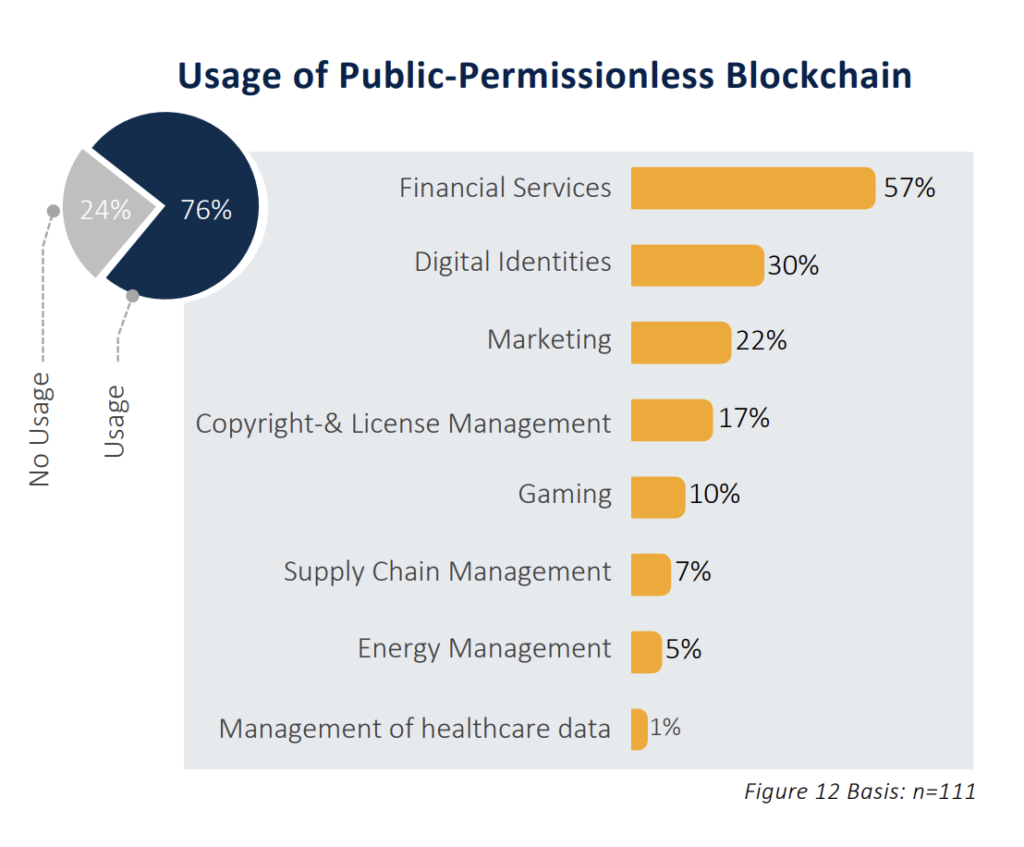A recent survey conducted by the Hanseatic Blockchain Institute sheds light on the state of technological adoption in Germany, drawing on data from the Ifo economic survey. While artificial intelligence (AI) is rapidly gaining traction in business operations, blockchain technology is struggling to make headway.
The survey data reveals a stark contrast in the adoption rates of blockchain and AI. In 2023, only 3.2% of German companies reported using blockchain, a figure that slightly decreased to 3.1% in 2024. On the other hand, the adoption of AI saw explosive growth, with the percentage of companies implementing AI doubling within a year, surging from 13.3% in 2023 to 27% in 2024.
Financial services emerge as a key adopter of blockchain technology, with 57% of blockchain-using companies in the sector. Digital identities also show promise, with 30% of blockchain users implementing related solutions.
In contrast, the service and retail sectors lag behind in blockchain adoption, with a majority of companies in these sectors deeming the technology irrelevant.
The survey findings point to several factors hindering wider blockchain adoption in Germany. The complexity and perceived uncertainty of the technology, coupled with a risk-averse business culture, contribute to its slow uptake. Public perception, often influenced by associations with volatile cryptocurrencies, further complicates matters.
Despite these challenges, the survey identifies promising areas for blockchain application. The financial services sector and digital identities present growth opportunities. The Hanseatic Blockchain Institute calls for targeted education, training, collaborative partnerships, and government support to accelerate blockchain adoption.
Moritz Schildt, chairman of the Hanseatic Blockchain Institute, emphasizes that technological innovation does not guarantee automatic adoption. He highlights the need for a strategic approach to integrating new technologies into existing business processes.
In conclusion, while blockchain adoption in Germany lags behind AI and cloud computing, there are opportunities for growth and development in specific sectors. By addressing key challenges and leveraging the potential of blockchain technology, German businesses can unlock new possibilities for innovation and growth in the digital economy.

